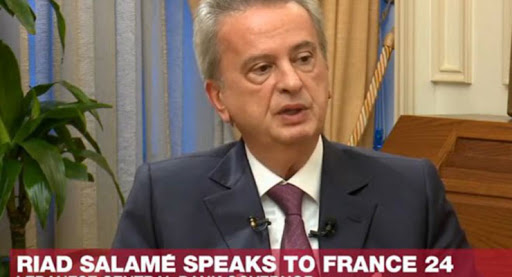Lebanon remains in a deep financial crisis, with many people struggling to make ends meet. Meanwhile, the country is still without a government, five months after the devastating Beirut blast. Riad Salameh, the governor of Lebanon’s central bank, denies any responsibility for the financial crisis. “My conscience is clear,” he told FRANCE 24’s Marc Perelman in an exclusive interview in Beirut, strongly hinting that he had been made a scapegoat.
In an exclusive interview with FRANCE 24, Lebanon’s Central Bank Governor Riad Salameh expressed concern about the ongoing financial crisis in his country, warning the situation could “deteriorate” if a government is not formed quickly.
He announced that Lebanon’s central bank is ready to provide all the information necessary for the “forensic audit” required by the international community.
Salameh denied being at the origin of a “Ponzi scheme”, as described by French President Emmanuel Macron, saying that the central bank has instead supported a Lebanese economy on the brink of collapse. He admitted that some wealthy Lebanese were able to withdraw large sums of money and send it abroad, while his fellow citizens can only withdraw limited amounts. Salameh said he had proposed capital controls at the start of the crisis, but that this was refused.
The central bank governor also explained that the era of the fixed exchange rate system between the Lebanese pound and the American dollar is over, and that there will now be a floating exchange rate determined by the market. He also denied having used “shell companies” to manage his real estate abroad.
Finally, Salameh claimed to be the victim of a “campaign” of personal attacks aimed at making him the scapegoat for the crisis and he said he currently had no plans to resign.
FRANCE24


Leave a Reply
You must be logged in to post a comment.